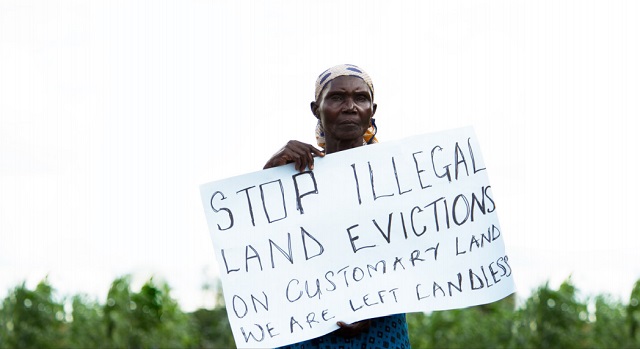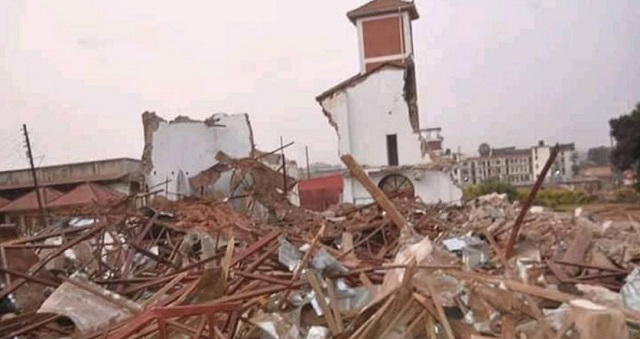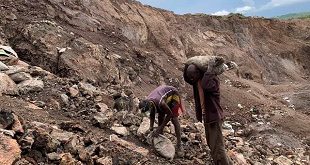
Experts say land issue might end badly, if not handled well
Kampala, Uganda | RONALD MUSOKE | Since President Yoweri Museveni’s ‘attack’ on Mailo land ownership — one of the four land tenure systems under which Ugandans can own land—public debate has reached a crescendo with Kabaka Ronald Muwenda Mutebi II recently speaking candidly on the issue.
“We have heard many people discuss about land in Buganda and many have said it is curtailing Uganda’s development. This is not true; those who say this want to weaken the kingdom of Buganda,” Mutebi said during his coronation anniversary celebrations on July 31 in Lwengo District.
Weeks earlier, in his Eid Adha message to the Muslim community, Mutebi appealed to the Muslim fraternity to “pray for God’s mercy against the ill-intentions of people targeting the kingdom property and culture.”
“We appeal to all believers participating in this animal sacrifice to do it with a purpose of beseeching God to save us, have mercy on us, and continue blocking all paths and voices targeting our properties, especially ownership of land in a move to undermine and create hatred for Buganda in various ways,” read part of the Kabaka’s message.
Many observers The Independent has spoken to say Mutebi’s quick responses were a rebuttal to Museveni’s speech at this year’s Heroes Day celebrations at Kololo Independence Ground on June 09.
President Museveni described Mailo land, which is predominantly used in Buganda Kingdom, as a “very bad and evil tenure system.”
He said he is disturbed when people, especially in Buganda, are illegally displaced from their land. He blamed the Mailo land tenure system for the land grabbing frenzy.
“It is not anywhere else in Uganda. It is really very bad and not fair but some people support it,” Museveni said. “How do you allow these things to happen? Land owners should be entitled to full ownership of their land like elsewhere in Uganda.”
Shortly after this, on Aug.03, Museveni and Kabaka Mutebi met at State House, Nakasero in Kampala. Not much was divulged from the meeting to the public but Mailo land is assumed to have been an issue.
Robinah Nabbanja, the Prime Minister, recently told NRM-leaning MPs that President Museveni is determined to press on with the amendment of the land law so that Bibanja owners can be protected from rampant evictions by title holders.
“The process of drafting the Bill is ongoing,” she said, “The government wants to give land owners full ownership of their land like elsewhere in Uganda.”
Dennis Obbo the publicist in the Ministry of Lands also told The Independent on Aug.04 that the Minister of Lands, Housing and Urban Development, Judith Nabakooba, is to prepare a White Paper for the Cabinet.

Why Mailo?
But why has the government chosen to amplify the issue of Mailo land, a complex system derived from the 1900 Buganda Agreement between the Kabaka and the British colonialists?
Godber Tumushabe, the Associate Director, Great Lakes Institute for Strategic Studies, a Kampala-based public policy research think tank, who has studied and written about aspects of Uganda’s land tenure systems told The Independent on Aug.04 that he doubts there is a particular problem with the Mailo tenure system.
“It is just like any other freehold system,” he told The Independent, “Land evictions have been everywhere in Uganda, not only in Buganda. We all know that the evictions are done by people who are connected in government and the military.”
Peter Wandera, the executive director of Transparency International-Uganda, also thinks Mailo as a land tenure system does not have inherent problems.
“As a land tenure system, Mailo has no issues. The people who are used to it have lived with it for many years. The land grabbing issues have just exacerbated the situation.” However, Wandera says it is important to contextualize the land issue in central Uganda.
“Most Ugandans buy land in central Uganda more than anywhere else in the country and because of that, the competition is tough for the relatively small land available. And given the land tenure system that obtains in Buganda, people keep struggling for the little that is available.”
But Edmond Owor; a consultant on land, told The Independent that it appears there is a “grand agenda” on land and that agenda is being driven by a small clique.
“People like Dr. Sam Mayanja (Minister of State for Lands) are in office for this particular reason. I doubt anybody is looking at the Bamugemereire report,” Owor told The Independent. “Unless Uganda’s land question is handled very well, it could end badly,” he said.
Frederick Golooba-Mutebi, a political analyst and researcher, also told The Independent that President Museveni’s obsession with mailo land mirrors his obsession with the Buganda monarchy and the Baganda.
“Museveni is just trying to get back at Buganda and Baganda following what happened in the just concluded general election,” said Golooba, “He was deeply hurt by the voting pattern in Buganda.”
“In the past, Museveni has always treated Buganda as a captive electorate. He is now trying to buy ordinary Baganda by championing the Mailo land issue,” he added.
Golooba says Museveni is indirectly attempting to portray to ordinary Baganda that the monarchy does not care about them so that he detaches them from the Kingdom.
“He thinks by exciting the peasants that will get him support and weaken the Monarchy,” Golooba says.
“The targeting of Buganda is deliberate. It is a weapon against Buganda. I don’t see President Museveni going around the country with the same energy that he is showing in Buganda.”
Golooba told The Independent that the land question in Uganda is not only applicable to Buganda. “In his (President Museveni) own native Ankole, who took over the communal land and government ranches? There are also land issues in the north (of Uganda).”
Leonard Okello, the CEO of the Uhuru Institute for Social Development, a Kampala-based think tank told The Independent that for one to understand why land is such an emotive subject across the country, one needs to go beyond the economic value of land.
 The Independent Uganda: You get the Truth we Pay the Price
The Independent Uganda: You get the Truth we Pay the Price


